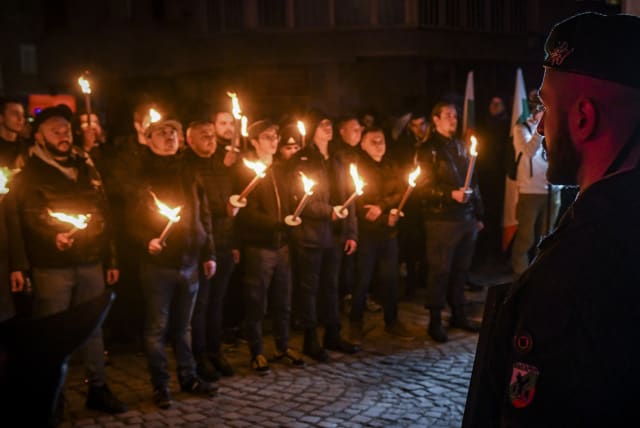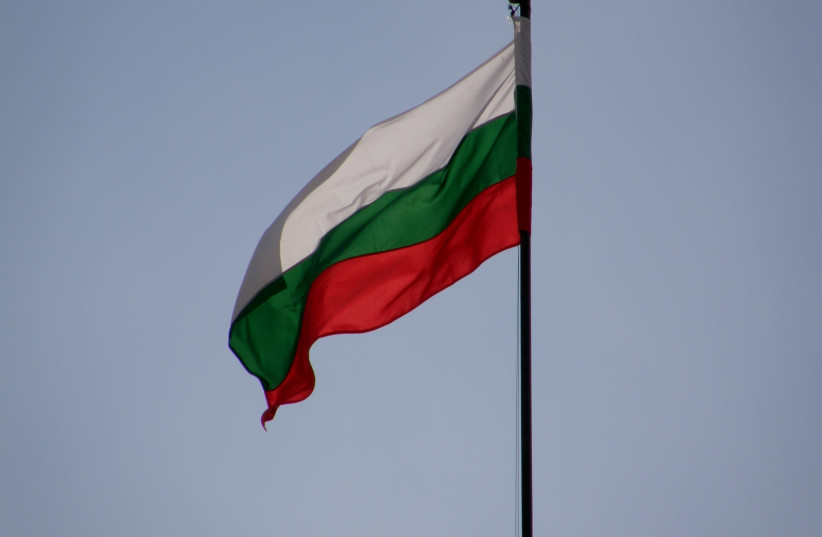After outcry, Bulgaria bars neo-Nazis from marching in tribute to Nazi collaborationist leader

The Lukov March had been held by the far-right Bulgarian National Union-New Democracy Party almost every year since 2003.
At the last minute, Nazi sympathizers from around Europe were blocked from marching in the streets of Sofia, Bulgaria’s capital, on Saturday, to honor Hristo Lukov, the World War II-era leader of a Nazi collaborationist group.
The Lukov March had been held by the far-right Bulgarian National Union-New Democracy Party almost every year since 2003 and has become a rallying point for far-right movements from around the continent.
It has also been a galvanizing event for counter-protesters. They had planned to hold a “No Nazis on Our Streets” rally outside Sofia’s Palace of Justice during the march, according to the Sofia Globe. “In spite of the organizers’ claims that it is simply a tribute to a ‘national hero,’ Lukov March has become the trademark event of fascist organizations in Bulgaria,” Antifa Sofia said in a statement to the newspaper. “It normalizes the presence of people with clear extremist views.”
City officials in Sofia had long sought to ban the march but were usually blocked from doing so by the courts. A ban was upheld in 2021, but the march went on in 2022. This year, city officials as well as leaders of Bulgaria’s small Jewish community asked the court to reinstate the ban, which it did on Saturday, hours before nationalists were set to march with torches through the city center.
If the march went on, Alexander Oscar, the leader of the Bulgarian Jewish umbrella group, Shalom, told the Jewish Telegraphic Agency, “it will be a huge humiliation for the country.”
The World Jewish Congress and American Jewish Committee had also exhorted the Bulgarian government to prevent the march.
In canceling the march, “the Bulgarian government and Bulgarian civil society have sent an unequivocal message that antisemitism, racial hatred and all other forms of xenophobia and intolerance have no place in contemporary Bulgaria,” the WJC said in a statement on Sunday. “In so doing, they have set a powerful example, to be emulated by other countries that face similar challenges which have no place in contemporary Europe.”
The march stands in contrast to Bulgaria’s own Holocaust history, when the country was one of the few in Eastern Europe to largely protect its own Jews, saving all 48,000 from deportation to Nazi concentration camps. However, as an ally of Nazi Germany, Bulgaria was involved in orchestrating the Holocaust in the regions of neighboring Greece and Yugoslavia that it occupied. More than 10,000 Jews from those regions were sent to their deaths at Treblinka, an act supported by Lukov’s Union of Bulgarian National Legions.
Jerusalem Post Store
`; document.getElementById("linkPremium").innerHTML = cont; var divWithLink = document.getElementById("premium-link"); if (divWithLink !== null && divWithLink !== 'undefined') { divWithLink.style.border = "solid 1px #cb0f3e"; divWithLink.style.textAlign = "center"; divWithLink.style.marginBottom = "15px"; divWithLink.style.marginTop = "15px"; divWithLink.style.width = "100%"; divWithLink.style.backgroundColor = "#122952"; divWithLink.style.color = "#ffffff"; divWithLink.style.lineHeight = "1.5"; } } (function (v, i) { });

